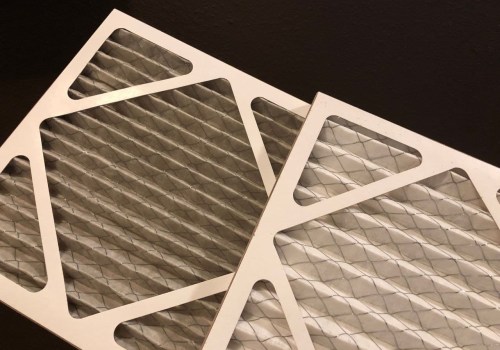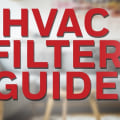Maximizing Efficiency With the Best Air Conditioner Filters
To boost your air conditioner's efficiency, always pick the best filter. Consider your system's needs, your air quality, and potential allergens. Check out filters with high MERV, FPR, or MPR ratings. Pleated or HEPA filters are great choices. Remember, the right fit matters! Measure your filter size to ensure a proper fit to avoid system damage. Regular maintenance is also paramount; clean or replace your filters often. With the right filter choice, regular upkeep, and a bit more know-how, you'll be maximizing your AC's efficiency in no time! Stick around, there's plenty more where this came from.
Key Takeaways
Choose high-efficiency filters like HEPA or pleated filters for improved air quality and AC performance.
Ensure the correct filter size for optimal installation and system protection.
Regularly maintain and replace filters to prolong the AC unit's life and maintain efficiency.
Consider filter ratings like MERV, FPR, and MPR to select the best filter for trapping particles.
Adapt filter choice based on seasonal needs for optimized performance and comfort.
Understanding Air Conditioner Filters
Let's dive right into understanding what air conditioner filters are and why they're crucial for your AC unit's performance and longevity. These filters are like the guards of your AC, keeping out dust, debris, and other harmful particles that can damage the system. They ensure your AC runs smoothly and lasts longer, saving you money on repairs and replacement.
Now, you've probably heard about filter maintenance and wondered what it entails. It's simple. Regularly checking your filter is key. If it's dirty, you'll need to clean or replace it. Don't worry, this isn't a complicated task. You can easily learn the installation procedures. First, you switch off the AC and find the filter location. Then, you remove the old filter, clean the holder, and insert the new filter. Remember, the filter should fit snugly and face the right direction.
You see, understanding your AC filter and how to maintain it isn't rocket science. It's all about being proactive and ensuring your AC system runs as efficiently as possible. After all, who doesn't want a cool, comfortable home without breaking the bank?
Importance of Filter Efficiency
Understanding the efficiency of your AC filter is crucial, as it directly impacts the air quality in your home and the performance of your AC unit. It's not just about keeping your home cool, there's much more at stake.
The filter's efficiency refers to its ability to trap particles that can disrupt your AC's operation and deteriorate the indoor air quality. A high-efficiency filter can trap smaller particles, which means cleaner air for you and your family. But it's also about the filter lifespan. An efficient filter doesn't just work better, it lasts longer. A longer filter lifespan means you'll be replacing it less often, saving you time and money.
Don't underestimate the importance of an efficient AC filter. It's a small component, but it has a huge impact. A good AC filter ensures your unit runs smoothly, prolongs its life, and maintains a high indoor air quality, protecting your health. Choosing the right filter can seem like a daunting task, but understanding the importance of filter efficiency can guide you in making the best decision for your home.
Types of Air Conditioner Filters
Now that you grasp the importance of filter efficiency, it's time to explore the different types of air conditioner filters available in the market. First, you have disposable fiberglass filters. These are affordable but don't offer high efficiency. They're easy to install, but you'll need to replace them frequently, increasing filter costs over time.
Next up are pleated filters. They're a step up from fiberglass in terms of efficiency and are still reasonably priced. Installation techniques are similar to fiberglass filters, but they last longer, reducing replacement frequency.
Then, you have washable filters. These come with higher upfront costs, but you'll save on replacements as they're reusable. However, they require regular cleaning to maintain efficiency.
Lastly, there are high-efficiency particulate air (HEPA) filters. These are the gold standard for air filtration, trapping the most particles and providing the cleanest air. However, they're more expensive and may require professional installation.
Guide to Filter Sizes
Navigating the maze of air filter sizes can seem daunting, but you'll find it's simpler than you think. Knowing the correct size is essential for efficient filter installation and it's not as hard as you might think.
Most filters have the size printed on their edge. Look for numbers like 16x25x1 where the first two numbers represent length and width, and the last one stands for thickness. If it's not there, you'll need to measure it yourself. Simply grab a tape measure and note down the length, width, and thickness of the old filter.
Maintenance tips are also crucial. A filter that's too small won't cover the whole intake, letting unfiltered air into your system. A filter that's too big won't fit properly and could damage your system. Always pick the right size for optimal efficiency.
Interpreting Filter Ratings
Deciphering air filter ratings, a vital step in choosing the right filter, isn't as complex as it may initially seem. You might come across some filter ratings misconceptions while making your choice. Don't worry, we're here to clear up the confusion.
First, you've likely heard of MERV ratings. They indicate a filter's efficiency at capturing airborne particles. Higher MERV ratings mean better filtration. But remember, higher doesn't always mean better for your specific needs. A filter with a high MERV rating can restrict airflow if your system isn't designed for it.
Next, let's address the FPR ratings. They're exclusive to Home Depot and range from 4 to 10, with 10 being the best at filtering small particles. Similar to MERV, a higher number means better filtration, but may not always be beneficial for your system.
Finally, consider the MPR ratings. This system is specific to 3M filters and ranges from 300 to 2200, again, higher numbers mean better filtration.
To make the best choice, you'll need to perform a ratings impact analysis. This means considering your specific system's requirements, the air quality in your area, and potential allergens. That way, you'll select the perfect filter for your AC, maximizing efficiency and improving your home's air quality.
Effects on Energy Consumption
In light of your AC system's performance, it's crucial to understand how the right filter can significantly impact your energy consumption. Filters ensure your AC runs efficiently, but they can become a hindrance if not adequately maintained. Clogged filters force your system to work harder, consuming more energy.
The filter lifespan plays a significant role here. A filter's condition deteriorates over time, causing it to become less efficient. If you're not replacing your filter within its lifespan, you're likely causing your AC system to use more energy than necessary. Regular filter changes are a must for energy efficiency and cost savings.
Seasonal adjustments also come into play. During hotter periods, your AC works harder to maintain a cool temperature, increasing energy consumption. If your filter isn't in top shape during these times, energy usage can spike dramatically. Therefore, it's essential to pay extra attention to your filter's condition during peak usage times.
Choosing the Right Filter
Now, let's talk about choosing the right filter for your air conditioner. You need to understand the different types of filters before you can make an optimal selection. Don't worry, we'll guide you through this important decision-making process.
Filter Types Explained
Understanding the different types of air conditioner filters is crucial when you're looking to make the right choice for your home. Each type varies in design, efficiency, and filter maintenance needs.
First off, you've got disposable fiberglass filters. They're cheap and trap large dust particles, but they're not the best for smaller pollutants. Pleated filters are a step up, capturing more and smaller particles. Electrostatic filters use an electrical charge to attract and trap particles. They're washable, which makes filter maintenance easier.
For innovative designs, consider HEPA filters. They remove 99.97% of air particles, making them an excellent choice for allergy sufferers. Remember, the right choice depends on your specific needs, so weigh your options carefully.
Optimal Filter Selection
After weighing the pros and cons of different filter types, you're ready to select the optimal filter for your air conditioner. Consider the filter lifespan, as a longer-lasting filter means fewer replacements and less hassle for you. Also, take into account seasonal considerations. If you're in a region with a high pollen count during spring, for instance, choose a filter that's good at trapping allergens. On the other hand, if summer's your problem season due to increased dust, opt for a filter that's efficient in dust control. Remember, the right filter not only maintains your AC's efficiency but also improves your home's air quality. So, choose wisely and breathe easy.
Frequently Asked Questions
How Often Should I Replace My Air Conditioner Filter?
You should replace your air conditioner filter every 60-90 days. But, it depends on the filter types and if you've made any installation mistakes. It's crucial to check and change it regularly for optimum efficiency.
Can I Clean and Reuse My Air Conditioner Filter?
Yes, you can clean and reuse your air conditioner filter. However, it's essential to follow proper filter maintenance techniques to ensure efficiency. Remember, if it's beyond salvage, consider eco-friendly disposal methods.
What Happens if I Use an Air Conditioner Without a Filter?
If you use your air conditioner without a filter, you're risking its efficiency. Filterless operation allows dust and debris to clog your system, reducing performance. It's crucial to understand the filter's necessity in maintaining effectiveness.
How Does My Home's Air Quality Affect the Lifespan of My Air Conditioner Filter?
Your home's air quality directly impacts your AC filter's lifespan. High airborne pollutants mean you'll need to replace filters more often. Different filter types also last varying lengths depending on your home's air conditions.
What Are the Consequences of Using an Incorrect Size of an Air Conditioner Filter?
Using an incorrect size of air conditioner filter, or 'filter misfits', can result in installation errors. This can lead to poor air quality, reduced efficiency, and even potential damage to your air conditioning system.







